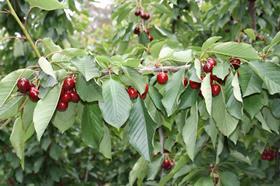
The Community & Public Sector Union (CPSU) has voiced concerns that fruit and vegetable exporters in the Australian state of Tasmania may face delays as a result of industrial action taken by Biosecurity Tasmania staff.
Since Monday, Biosecurity Tasmania workers have refused to work overtime, which CPSU spokeperson Tom Lynch said would delay inspections, affecting exports and tourism.
“We understand they’re already saying to exporters that there are no appointments available in the second half of this week for produce to be checked to get out of the state,” Lynch said.
The Tasmanian state government, however, has rejected the claim, with the minister of primary industries telling the ABC that export certification would continue as usual this week.
Phil Pyke, business development manager of Fruit Growers Tasmania, has labelled Lynch’s claims as politically motivated, telling Fruitnet that if there was an issue with export delays, then the union should have contacted the industry body.
Pyke said that Fruit Growers Tasmania supports the work done by Biosecurity Tasmania, especially as exports ramp up from mid-December.
“We’re also trialling the authorised industry-officer programme over the summer period,” Pyke explained. “While the programme will be audited by Biosecurity Tasmania, fruit growers will be less reliant on Biosecurity officers for export certification.”
Pyke added that one industry that could be affected is the state's blueberry growers looking to export to mainland Australia, with the season kicking off early 2016.
“Where we hope there won’t be an impact is in the required surveillance of blueberry crops, which may be needed in order to export to mainland states as a result of the blueberry rust outbreak last year. This surveillance will potentially be carried out in the weeks prior to harvest, however, we are waiting confirmation on the import requirements of mainland states,” Pyke said.
With Tasmania’s summer crops looking at a solid export season, particularly with strong demand from China and growing demand from South Korea, Pyke said Tasmanian growers would not be held hostage to the union if they continued to play politics with the incomes of growers and exporters.






No comments yet